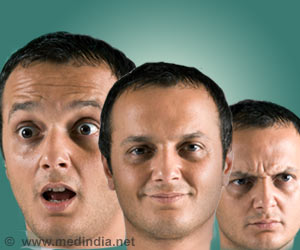Emotions are not just special cases of perception or thought but a separate kind of mental state which arises through the integration of feelings of bodily processes and cognitive contents.

According to the James-Lange theory, we do not tremble because we are scared, but rather we are scared because we tremble.
"This theory does not, however, consider the cognitive content of many emotions", Prof. Dr. Albert Newen of the Institute of Philosophy II at the Ruhr-Universitat Bochum said.
If a student is anxious about an exam, then he is experiencing this anxiety because he thinks, for example, that the exam is important and that he will have a blackout.
The so-called "cognitive theory of emotions" therefore says that emotions are essentially an assessment of the situation based on reason: this dog is dangerous because he is baring his teeth.
Newen said that this theory is also unsatisfactory because it forgets the feelings as a central component of the emotion.
Advertisement
Bochum's philosophers call their new model the "integrative embodiment theory of emotions."
Advertisement
An emotion only comes into existence, however, when the perception of bodily states is integrated with other aspects.
The brain has to combine at least two components here: the perception of our own bodily states in a given situation, for example trembling, and the intentional object, such as the dog, which triggers the fear.
Moreover, in "cognitive" emotions, typical thought content can also play a role, for example, with regard to a bull terrier: "bull terriers are particularly strong and dangerous."
The result is a separate kind of mental state, namely an emotion that we conceive as a complex pattern of distinctive characteristics.
The research is published in the journal 'Philosophy and Phenomenological Research'.
Source-ANI









